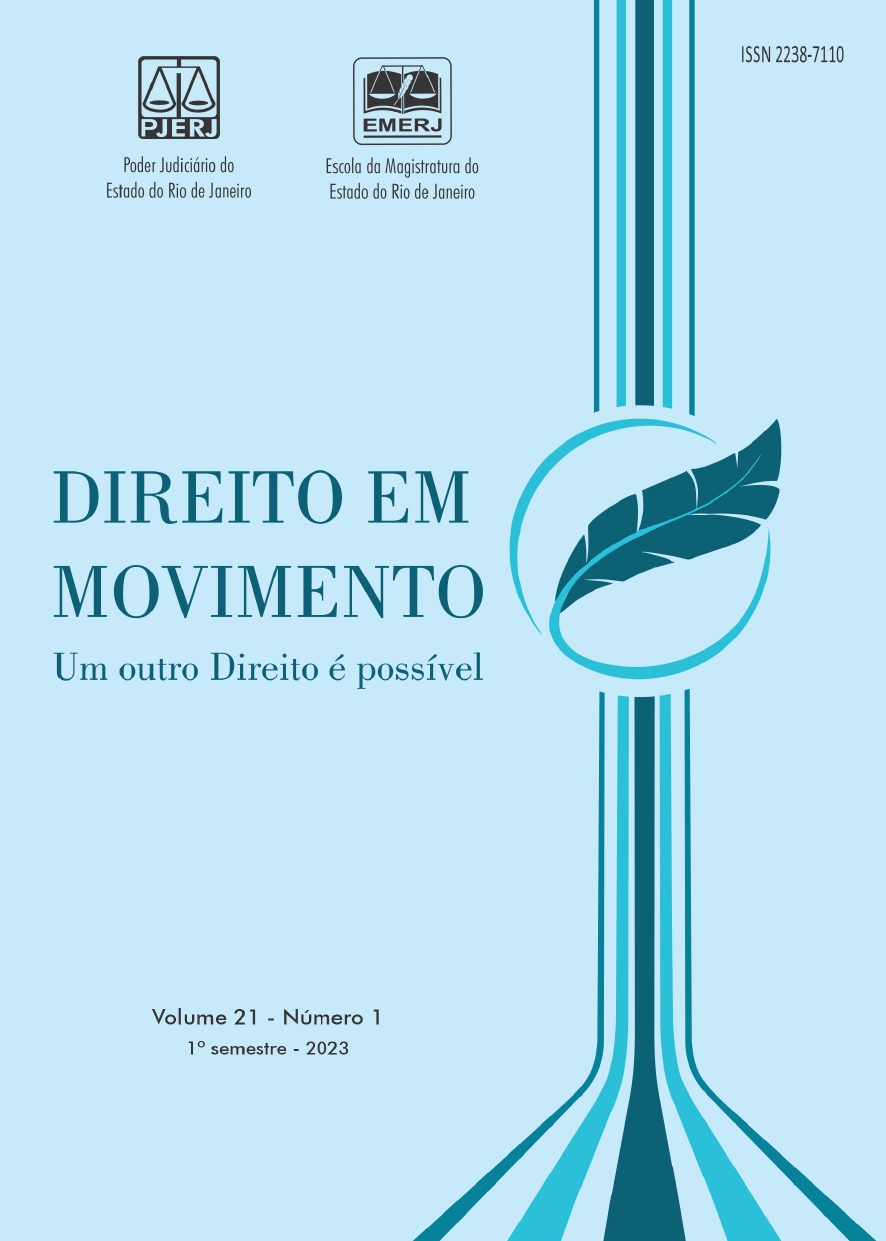Sharing economy
Effectiveness of law and (in)security
Keywords:
uberization, shared economy, appfication, economic changesAbstract
This paper performs an initial reading, based on Tom Slee’s book, “Uberização”, analyzing social and legal aspects of the Sharing Economy. It aims to analyze and answer whether the sharing economy is sustained or will be sustained socially and economically and who can take advantage of it. The research was based on the dominant doctrine, in particular the theme “uberization“ of Tom Slee’s book, using the deductive method, that is, an approach in which one starts from general premises (in this case, the dominant doctrine) to arrive at establishing specifically the solution to the analyzed social problem. It seeks to identify the economic, social and legal bases regarding the effects of multilateral platforms for economic sharing of goods, and their effects. Emphasis will be given to notions of sharing, from prehistory to current times, with the application of the platforms of companies that deal with the central theme from the dynamics of these economic agents who, despite their short existence, have been causing major changes in the Brazilian economy. It was concluded that a new version of capitalism was found, extreme, where big investors found a market niche to profit more.
References
COSTA, D. & FALCÃO, R. F. O valor percebido pelos usuários na troca de tempo: o caso Bliive. Consumer Behavior Review, 2 (Special Edition), 2018
FACHIN, Luis Edson. Teoria Crítica do Direito Civil. Rio de Janeiro: Renovar, 2000; p. 209.
LITRENTO, Oliveiros. Curso de Filosofia do Direito. 2. Ed. Rio de Janeiro: Forense, 1984.
PEREIRA, Caio Mário da Silva. Condomínio e Incorporações. 11. Ed. rev. e atualizada e ampliada segundo a legislação vigente. Rio de Janeiro: Forense, 2014.
SLEE, Tom. “Uberização. A nova onda do trabalho precarizado”. 1ª, Ed. Editora Elefante. São Paulo: 2017.
BOA, Lucas Fonte. Prevendo comportamentos! Será? In: https://labcon.fafich.ufmg.br/prevendo-comportamentos-sera/
BOTSMAN, R. ROGERS, R. Beyond Zipcar: Collaborative Consumption. In https://hbr.org/2010/10/beyond-zipcar-collaborative-consumption
BOTSMAN, R.; ROGERS, R. What’s mine is yours: The rise of collaborative consumption. New York Harper- Collins, 2010, p. 60, 62. (Kindle/Amazon)
CAPLAN, Bryan The Evidence of Altruism. In: https://www.econlib.org/archives/2014/12/the_evidence_of.html acesso em 01 jun 2022.
DEBONI, Giuliano. Propriedade Privada: Do Caráter Absoluto à Função Social e Ambiental. p. 13. https://domalberto.edu.br/wp-content/uploads/sites/4/2017/08/Propriedade-Privada-do-Car%C3%A1ter-Absoluto-%C3%A0-Fun%C3%A7%C3%A3o-Social-e-Ambiental.pdf
DURKHEIM, Emile. “The Rules of Sociological Method” Traduzido por W. D. Hall. THE FREE PRESS, New York, N.Y, First American Edition, 1982, p. 10
DURKHEIM, Emile, Edição revisada por Ken Thompson (See discussions, stats, and author profiles for this publication at): In: https://www.researchgate.net/publication/47136994 e
https://monoskop.org/images/1/1e/Durkheim_Emile_The_Rules_of_Sociological_Method_1982.pdf4
GONZAGA, Álvaro de Azevedo, ROQUE, Nathaly Campitelli. "Teoria Tridimensional do Direito." in: https://enciclopediajuridica.pucsp.br/verbete/64/edicao-1/tridimensional-do-direito-teoria
LIMA, Thaís Damasceno, DEUS, Larissa Naves. “A crise de 2008 e seus efeitos na economia brasileira”. Revista Cadernos de Economia, Chapecó, v. 17, n. 32, p. 52-65, jan./jun. 2013, In: https://webcache.googleusercontent.com/search?q=cache:Z3n9lpg0FiYJ:https://bell.unochapeco.edu.br/revistas/index.php/rce/article/download/1651/922/0+&cd=15&hl=pt-BR&ct=clnk&gl=br,
MÉNDEZ GONZALES, Fernando e DIP, Ricardo. “Registro Público de Imóveis eletrônico – riscos e desafios”. https://cartorios.org/2016/01/21/registro-publico-de-imoveis-eletronico-riscos-e-desafios/
MOREIRA, Airton Rodrigues. "A Tridimensionalidade do Direito e a Crise do Ordenamento Jurídico" https://www.webartigos.com/artigos/a-tridimensionalidade-do-direito-e-a-crise-do-ordenamento-juridico/92741
PERLINGIERI, Pietro. Perfis do Direito Civil: Introdução ao Direito Civil Constitucional. Rio de Janeiro: Renovar, 1997; p. 94, In: https://pt.scribd.com/document/267699723/008-Perfis-Do-Direito-Civil-Pietro-Perlingieri.
VERDANA, Simone Nazareth, BREI, Vinicius Andrade. “Consumo Colaborativo, Acesso ou Compartilhamento. “Um Ensaio Teórico sobre a Distinção entre Conceitos e Práticas” in: https://lume.ufrgs.br/bitstream/handle/10183/151485/001011666.pdf?sequence=1&isAllowed=y
Published
How to Cite
Issue
Section
License
Copyright (c) 2023 Izaias Gomes Ferro Júnior, Marcelo Augusto Santana de Melo

This work is licensed under a Creative Commons Attribution 4.0 International License.
Authors who publish in this Journal agree to the following terms:
- Authors retain copyright and grant the Journal of Constitutional Research the right of first publication with the article simultaneously licensed under the Creative Commons - Attribution 4.0 International which allows sharing the work with recognition of the authors and its initial publication in this Journal.
- Authors are able to take on additional contracts separately, for non-exclusive distribution of the version of the paper published in this Journal (eg.: publishing in institutional repository or as a book), with a recognition of its initial publication in this Journal.
- Authors are allowed and encouraged to publish their work online (eg.: in institutional repositories or on their personal website) at any point before or during the submission process, as it can lead to productive exchanges, as well as increase the impact and the citation of the published work (see the Effect of Open Access).

















